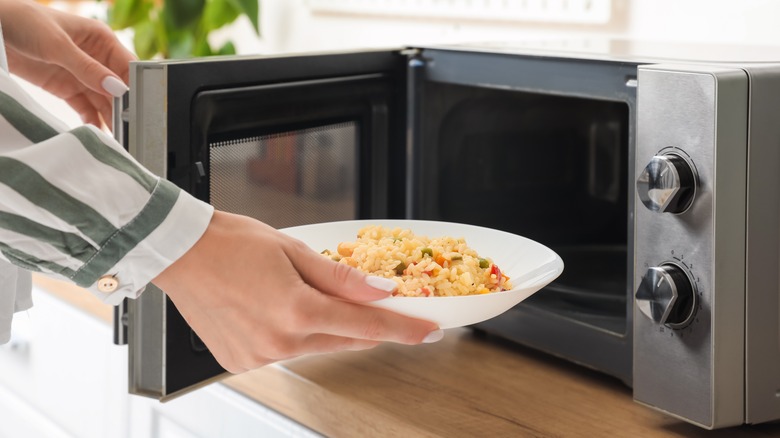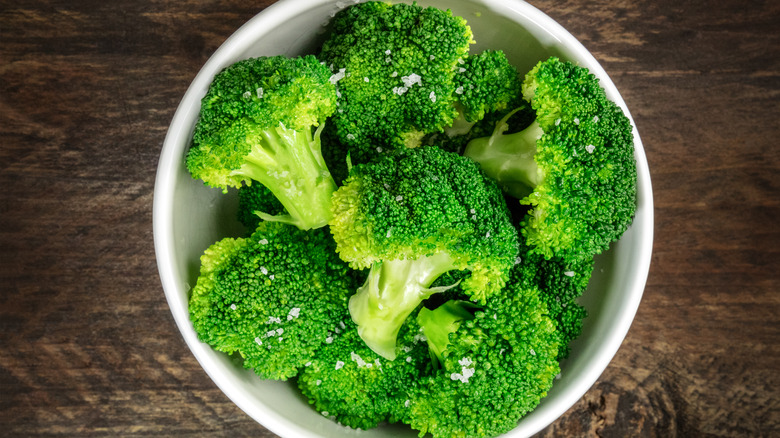Does Microwaving Food Impact Its Nutritional Value?
Microwaves aren't just a college dorm room staple — today, 90% of Americans have a microwave oven in their kitchen, per the U.S. Bureau of Labor Statistics. While many of us also rely on toaster ovens, air fryers, and even the stovetop as an alternative, microwaves are arguably the easiest and quickest way to reheat leftovers (though beware, some types of food fare better in the microwave than others). There are plenty of myths out there that microwaves are bad for your health, but when used properly, they're safe to use, and there's really no evidence that the radiation in microwaves is harmful to your health, according to GoodRx Health.
So while microwaving food is perfectly safe (so long as you're not using one of these types of containers), you may be curious if reheating or even cooking food in the microwave has any impact on its nutritional value — and the answer may surprise you.
Any nutritional value lost is insignificant
Unless you're consuming food raw, any cooking method will cause a breakdown of nutrients. Perhaps surprisingly, microwave cooking — as opposed to other methods like roasting or boiling — is usually less likely to damage a food's nutrients, according to Harvard Health. This is mainly due to the fact that microwaving food takes less time than other cooking methods, and more nutrients tend to break down the longer food cooks. Even so, a study found that the differences in vitamin retention in foods that were microwaved versus cooked using other conventional methods were very minimal, per the National Library of Medicine.
As for the instances in which microwaving foods helps retain more nutrients than other cooking methods, there are a few examples. When broccoli is boiled in water, it loses glucosinolate, a cancer-fighting compound, per Harvard Health. When steamed, even in the microwave, the cruciferous veggie tends to retain more glucosinolate. Similarly, microwave cooking allows more retention of vitamin C in veggies than other cooking methods, such as boiling (via the National Library of Medicine), due to less contact with water and cooking at lower temperatures.
The bottom line is, when you're short on time and want to zap some leftovers or rapidly steam some veggies in the microwave for a quick side dish, you can use the microwave with peace of mind knowing you won't be losing out on nutrients in any major way.

